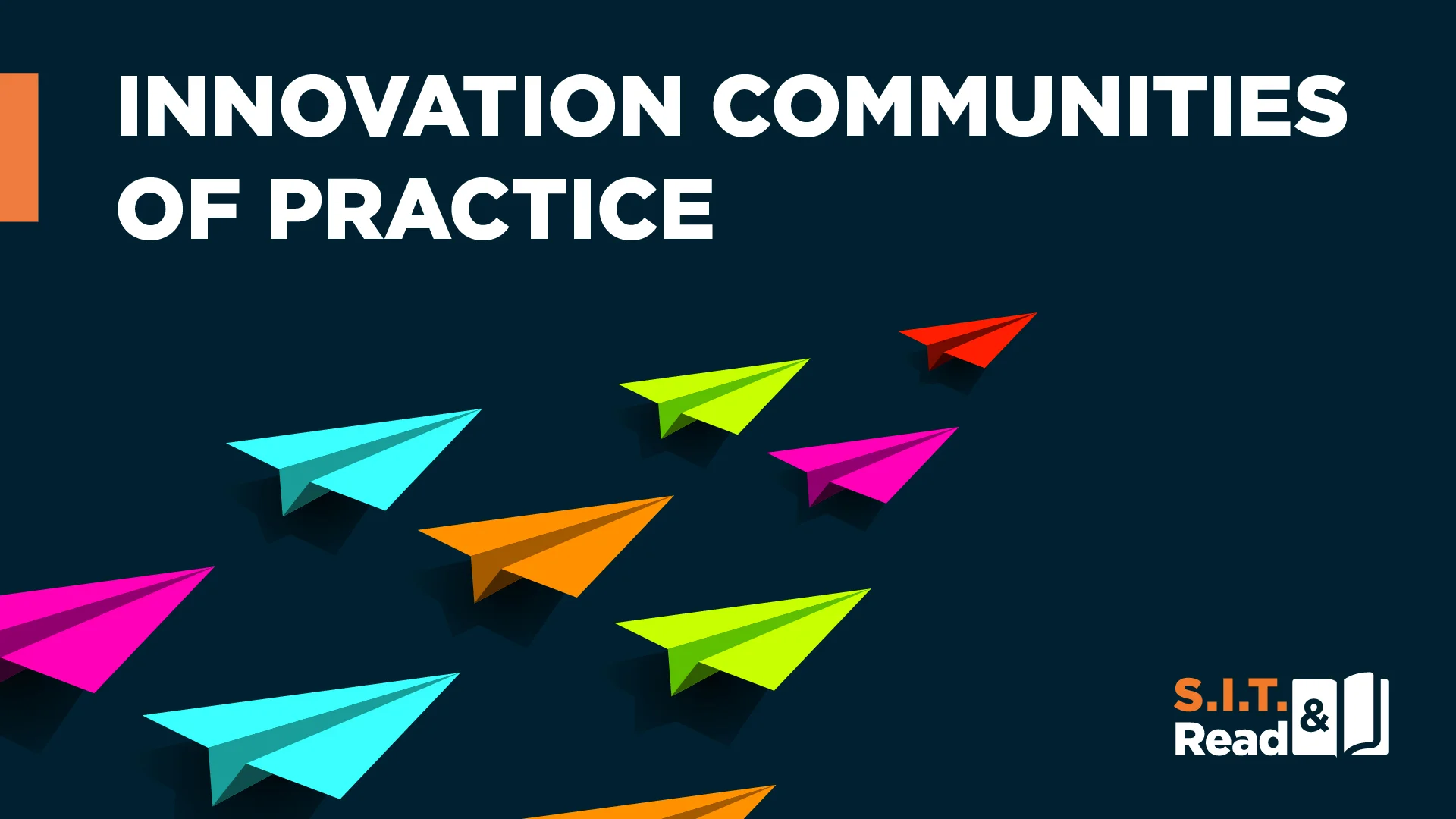Innovation communities of practice – Part 1


Innovation Coaches in action
This one is for all our worldwide Innovation Coaches community of practice, their supporting managers, and everyone interested in launching an organizational innovation program.
Nowadays, the term “coach” is widely used for almost any role that has to do with helping others attain or practice new skills, overcome a barrier, or generally improve. Given that innovation has a crucial function in business, strategy, and organizational change processes, it is no surprise that SIT has worked for many years to develop and advance Innovation Networks in which Innovation Coaches take an active role.
Over the last years I’ve spent most of my working hours designing, managing, and leading innovation networks and training programs. With the sustainable innovation approach becoming more and more common, I am often asked under what circumstances an organization should develop inhouse innovation related capabilities. Two recent – very different in scope and style – training cohorts, led me to think about all the innovation coaches I’ve trained, their inspiring success stories, and diverse challenges.
So, in case you never had a chance to collaborate with an iCoach – I hope to convince you that you should; and if you are an active iCoach – this is the moment where you get to kick back, recall how amazing and important the work you do is, and then – share with your friends and colleagues. I am confident that many people in your organization will be happy to learn more about your innovation training, knowledge and activities, and how you can help promote innovation and business impact.
Making room for your innovation community
Innovation coaches help others to innovate in what they do, primarily by driving small-scale innovation activities aimed to generate new ideas, solutions, collaborations, and inspiration which in turn drive business impact. Most organizations we (SIT) advise have adopted our role definition and refer to someone as an innovation coach (iCoach) upon completing our onboarding training and practice. These initial programs make them valued members in the organizational community, as well as part of SIT’s global innovation community of practice.
The idea of defining a new – innovation based – role to individuals is key to designing and rolling out a fruitful organizational innovation strategy. Setting such a mechanism is key to the organization’s ability to nurture and scale innovation efforts alongside its core activities. Strong innovation communities can also enhance additional organizational efforts such as promoting new concepts, ideas, tools, and insights – which many organizations find challenging to implement when merged into their day-to-day tasks.
A community of active innovation coaches is at the core of a meaningful, impactful innovation framework. It is where the top-down and bottom-up strategies come together in the form of ongoing activities providing additional value. Community size will vary based on organization’s size and structure and innovation objectives – from 10 to +1000.
What does an innovation coach do?
Innovation coaches are trained to initiate, plan, and moderate internal innovation activities to generate new ideas and solutions in the context of a specific business topic. When designing the coaches training program, we define and adjust the role to reflect the organization and its innovation strategy and capabilities so that in time (and practice) they will be able to meet Return on Innovation (ROI) goals.
SIT’s Innovation Coaches are trained in conducting Mini-Sessions using a structured and systematic method. These sessions in which one or two coaches collaborate with a small group of colleagues to generate new ideas, solutions, and insights to benefit a specific business topic across the innovation process and framework. Active and impactful innovation coaches will usually run around 10 Mini-Sessions a year (and participate and lead additional innovation activities – alone and with their fellow coaches).
Who should become an innovation coach?
This is one of the questions I am most frequently asked. Anyone in the organization can innovate and contribute through innovation. Yet iCoaches hold a unique function and therefore their nomination is important on the individual, team, and the organization levels.
Here are three useful tips to consider when nominating iCoaches:
- Having an active interest and motivation in innovation is a strong indicator to one’s success and activity level over time. The importance of being passionate or interested is true for most endeavors, and it is more so for tasks that require taking initiative, challenging existing practices and mindset, and engaging others.
- Active and impactful iCoaches are usually the ones who are “going places” within the organization. They bring in their organizational experience and knowhow to achieve goals yet are not so senior that won’t have the time to take on additional responsibilities.
- Having a group of motivated and experienced nominated individuals in your iCoach team is great, but not enough. An effective iCoach team is aligned to the organization’s business functions and echoes its structure and strategy. This way, as a group can form an active, interactive community of practice.
Building your dream team of iCoaches is kind of a combination between science and art. If you are currently engaged in this process, here is my (maybe surprising) advice: look for those people that everyone would like to have in their team, those who are busy yet somehow always take on another interesting and challenging task (or two).
An active innovation coach requires training, mentoring and management support.
In our next post we will share insights about the life of an iCoach. Meanwhile, we invite all our active iCoaches to share their thoughts via email, DM, or comment below.
We know you are here 😊.
Recent Posts
Innovation Behavior
Innovation is a skill, not a gift. Top organizations drive growth by nurturing and investing…
Should you learn TRIZ? – Yes. ….and No.
Are you in the world of problem solving? Is problem solving a skillset you have…
What Lies Ahead in 2024?
5 Data-Driven, Customer-Centric trends we’ve identified This is not just another conventional forecast. Over nearly…
Fork or Chopsticks – Which Innovation Tools Do You Use?
Imagine a chef, who only uses a spoon. Imagine a dentist, who only uses a…
The Moat Mentality: Exploring New Frontiers in Innovation Methodologies
In investing and business strategy, we often speak in terms of moats. Warren Edward Buffett…
Was it a Breakthrough or an Adjacency?
This year, P&G’s Febreze celebrates its silver anniversary as a brand. But not all 25…


